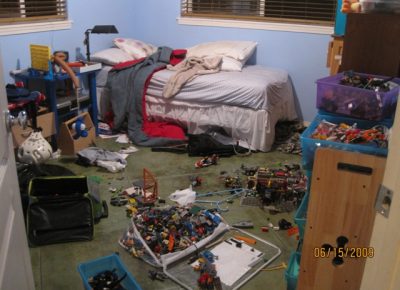Author Archives: addvantages
I Was Living with ADHD Induced Self-Hate for Far Too Long

Anyone can lose their keys or forget to turn off the oven. But living with ADHD means these missteps never stop. Here is how I learned to practice self-compassion, set goals, and surround myself with people who encourage and celebrate my true self.
Living with ADHD is a Daily Stress
Finding lost keys in the refrigerator? Running out of gas despite the Post-it note reminders on your steering wheel? Looking for your phone for the tenth time today? You are not alone, and you are not faulty — no matter what the world tells you.
People are not often forgiving with their words when they see us slip up. Once, when driving a friend from out of town, she asked me to stop at a mailbox. I tried to locate one, and she asked, “How can you not know where the mailbox is in your own town?”
Recently, I attended a baby shower. Even though I had my clothes picked out ahead of time, had driving directions in hand, and had allowed time to stop at the Dollar General store for a gift bag and tissue paper, I was late again. Do this more than once and people think you are self-centered. It’s embarrassing, so I try to hide my ADHD from those outside of our culture.
Living With ADHD Can Breed Self-Hate
I was asked many times when I was young why I was playing “the dumb blonde.” I am intelligent, but I have to remind myself of that still. Even though I have advanced degrees, have received accolades for my work, and started a learning center to help those with ADHD and learning disabilities, I feel inferior. How is it possible for someone to think this way with so many achievements under her belt?
I feel like an imposter, as if I have some character defect. From the outside, my life looks good. I live on the beach, I’m in a great relationship, and I have a solid career. What people don’t see are my struggles with everyday tasks. Anyone can lose their keys or forget to turn off the oven. The difference is, with ADHD, these missteps never stop. ADHD is a lifelong disorder. Living with it is hit or miss, like driving at night without headlights.
When I try to explain this to neurotypical friends, I come across as a victim and a whiner. Add to this the fact that I blurt out whatever is in my brain — which, in most cases, should have stayed there — and you can see why few people understand, or even try to understand, what I go through. So these days I just hold it in.
[Read This Next: The Best Web Resources for Women with ADHD]
Self-hate is torturous. I say to myself several times a day, “You’re lazy, incompetent, and self-centered. Why can’t you do anything right? You just want special attention. It’s all in your head. There is nothing really wrong with you.”
Living with ADHD Requires Perseverance
How do I make lemonade out of these lemons? Instead of curling up in a ball on my bed, I persevere. I keep making mistakes, but I push forward. It’s not easy, and I do get my feelings hurt a lot by critical, harsh comments from others. Some days are better than others, and some I don’t want to remember again. But things pass, the sun rises and sets.
I refuse to live my life trying to save myself some embarrassment, struggle, or heartache. When I die, I don’t want my headstone to say, “She lived till 95, but died at 35.”
Here is what I have learned and want to pass on to you:
1. Love yourself! ADHD is a chronic disorder. Whenever you screw up, put your hand on your heart and say, “I deeply love and accept myself, even though I [whatever you screwed up on — it could be re-washing your clothes for the third time because you forgot to put them in the dryer, or trying to unlock the wrong car in the parking lot]. No matter the misstep, this is my mantra. I say this each time I struggle, make a mistake, or don’t meet my goal.
[Self-Test: ADHD Symptoms in Women]
2. Find a mentor who understands and encourages you. As Mister Rogers said, “Look for the helpers.” When I was 22, I was floundering. My childhood friend Nancy encouraged me to go to college. I told her no, they would kick me out and I wasn’t college material. She said “Go anyway.” I needed the outside reinforcement of someone I trusted to allow me to believe in myself.
3. Don’t settle for less. Keep taking risks, regardless of the outcome. When I left my public-school teaching position to start my business, I was determined to create a program that went beyond what anyone was providing students at the time. Learning to manage the organization and administrative side of the business was a painful process for me. Through trial and error I developed systems tailored to my business needs. I eventually reached a point to be able to hand off those tasks to my hired employees!
4. There is no one right way to do things. Whatever works for you is the way to go. It’s OK to try new approaches to manage things when the novelty wears off and the boredom kicks in. For instance, I’ve recently changed my cooking strategy from preparing food in bulk and freezing it to hiring a meal delivery service. I don’t know how long this will last, but for right now I’m enjoying the ride. Free yourself from self-judgment by giving yourself permission to create new hacks.
5. Reboot your brain. Most of us use hyperfocus as a strategy for getting things done, but give your brain a break to refresh, or you will burn out. Don’t fall into the trap of thinking you will threaten your productivity if you take a break. Recently, I created a new website, and it was hell on wheels for me! My frantic self was convinced that if I stopped to take a walk, I would fall more behind, so I couldn’t enjoy the benefits of taking the walk. I needed to find a new hack. I unchained myself from my desk every half hour and, for two minutes, I jogged in place, ran up and down the hallway, and did a quick stretch to diffuse all the tension in my brain.
In the end, please remember that you’re a person, not a label. Different isn’t better or worse, it’s just different.
 Linda Karanzalis, MS
Linda Karanzalis, MS
Linda Karanzalis, MS, is a former special education classroom teacher with over 25 years of experience in the areas of learning disabilities, ADHD, social-emotional learning, social skills training, and behavior management.
What Is Nonverbal Learning Disorder?

Nonverbal learning disorder is a little-known condition that impacts more people than you might imagine, causing real daily difficulties for the adults and children who have it. Learn the signs of this confusing condition, and what you can do to treat it.
NJ Distance Learning Tutor
 We serve as a NJ distance learning tutor center. Learning challenges can be difficult to diagnose and even harder to tap into. As a South Jersey based executive functioning and tutoring center, we aim to bridge the gap between challenges and achievements. We offer in-office and Nationwide online programs for adults and children with all kinds of learning disabilities. Our tutors tackle ADD, ADHD, math struggles, reading struggles, writing struggles and a host of other learning disabilities and diagnosis.
We serve as a NJ distance learning tutor center. Learning challenges can be difficult to diagnose and even harder to tap into. As a South Jersey based executive functioning and tutoring center, we aim to bridge the gap between challenges and achievements. We offer in-office and Nationwide online programs for adults and children with all kinds of learning disabilities. Our tutors tackle ADD, ADHD, math struggles, reading struggles, writing struggles and a host of other learning disabilities and diagnosis.
We’ve developed Home Based Programs to suit their needs from far away. These programs are designed to give students an opportunity to continue their education right from the comfort of their homes. There are many struggling students who have invested in tutoring, only to see little to no improvement. Often, tutoring sessions become continual expenses that barely have the student get through the year. Utilizing the best advances in technology, students will not need to worry about meeting their educational goals in the event they cannot get to the center itself. Our proven programs include fun and challenging online lessons, exercises, and tests. Our home- based solution is an option for those who need to work online with remote support for convenience and affordability.
Try a NJ distance learning tutor to learn faster from afar. Specifically, for students who suffer from attention blocks, we urge you to use this opportunity to expand the possibilities of furthering your education through our free consultation.
Feel Like a Giant in the Workplace and a Midget at Home?

As published on additudemag.com
Do you ever get a song stuck in your head that you can’t get rid of it? The other day I saw a commercial for Green Giant™ vegetables and no matter how hard I tried I couldn’t get this tune out of my head. Over and over again I caught myself thinking, humming, and singing “Ho, Ho, Ho, Green Giant.” You know the old saying, if you can’t beat em’ join em’? So I went with it and thought about green giants to trick my mind into thinking about something else. Lo and behold, somewhere in between my strategy and the quick rapid firing thoughts of an ADD’er I made a connection from giants to failing at my attempt to growing my own vegetable garden. It’s no secret to friends and family I am a Betty Crocker – Donna Reed wanna be with little to no success.
I began to ponder how it is I can be a competent business owner and founder of a learning center for kids and adults with ADHD and yet be a hapless home diva that can’t put a meal together without burning it! Now I know I am not the only ADDa Girl facing this dilemma of running circles at work but yet can’t seem to get the house clean or face those dirty dishes and mind numbing chores. What I realized is I am not comparing apples to apples. Work and home are two very different environments. We are required to perform at work and held accountable for our actions. This in itself increases our adrenaline like a gun to the head. We must be prepared for the meeting, arrive on time, and so on. We are given immediate feedback and measured on our achievements or lack of. At home we are left to our own devices. There is no structure to get our frontal brain lobes in gear to do mindless boring tasks. The key to home success is to recreate an environment that simulates work. Set up your time hour by hour of what needs to be done. Hold yourself accountable by reporting to someone what you have accomplished. Make deals with family members and trade off tasks that are harder for you to do.
Realize it’s not trying harder but working smarter. Don’t compare yourself to others. Give yourself permission to do what is reasonable for you and take shortcuts. Allow yourself to make those cut and slice cookies instead of from scratch! Accept you are doing the best you can despite a brain that is not working up to full capacity. Would you expect a paralyzed person to walk? Give yourself a break and know you have a medical neurobiological based disorder. You may not be a domestic goddess but you have many other talents and positive attributes. As I say this to you I reaffirm for myself it’s okay to boil frozen Green Giant ™ vegetables instead of growing my own vegetable garden! So say goodbye to Martha Stewart and embrace your ADDa Girl. Remember, you’re amazing, dynamic, determined women with ADHD!
ADDa Girl™
How Can I Get My ADHD Child to Clean His Room?

Q. I was wondering if anyone has any tips or tricks for getting my 7 year old son to clean his room or clean up after himself. I pretty much just clean his room myself because telling him to clean his room is a SURE FIRE trigger to a major melt down (on meds or not) and since he shares a room with his younger brother it is fair that he never has to clean up after himself. I have just always done it to avoid the meltdown which always leads to my own melt down!
A. Children with attention deficit disorder (ADHD) need lots of structure and strategies to accomplish tasks that may seem ‘easy’ or ‘common sense’ to others. Many children with ADHD often ‘shut down’ when overwhelmed and often ‘act out’ when confronted with meeting parental expectations, like cleaning their room, as they have no idea how to start and finish. By cleaning his room for him to avoid a meltdown you are actually reinforcing and rewarding your child for inappropriate behaviors. Of course this is not your intention, but the cost of ‘keeping the peace’ backfires in the long run. It is better to be prepared to endure the ‘meltdown burst’ to teach your child life-long skills to manage himself and the expectations of others towards becoming an independent adult.
No worries, your child can learn how to clean his room with consistent practice. First you need to define what ‘cleaning your room’ means to your child. Break down what is to be done in order by creating a list on poster board and placing in his room. Laminate the poster board so your child can use a wipe off marker after he completes each step. Practice with your child by showing him how to do for each item on the list. For example, if you want him to put his clothes in the laundry place two baskets in his room. He will put all the whites in the white basket and the darks in the dark basket. If you would like him to pick up his shoes place a plastic shoe holder that is hung over his bedroom door to put them in. Assess your child’s belongings and provide a ‘home’ for them his room. One child I worked with loved baseball cards, he knew exactly where they were, strewn all over his bedroom floor! I worked with his mother to devise a system of placing them in plastic card holders and organizing them in binders by leagues, teams, hall of famers, and positions. The child was proud of ability to manage his cards as was his mother. Break down each task and practice with your child until he masters each one independently, and the next time you say ‘clean your room’ your child will know exactly what to do!
To set up a system for chores read my article exclusive web article on at
http://www.additudemag.com/adhd-web/article/9110-5.html
ADHD CHADD Conference Highlights

Lunch with Dr. Ned Hallowell, author of Driven to DistractionLunch with Dr. Ned Hallowell, author of Driven to DistractionAs the coordinator of CHADD of SJ Chapter I attend the conference each year and return inspired from my experience and participation. This year I had the opportunity to have lunch with Dr. Ned Hallowel, author of ‘Driven to Distraction.” Dr. Hallowell is a international expert in the field of ADHD. Dr. Hallowell graciously shared his in-depth knowledge and talked about how he is in the business of unwrapping the gifts of ADHD. He noted ADHD is not a gift but people with ADHD have gifts just like others do without ADHD.
Highlights of CHADD Conference
Theme:
Creating Better Tomorrows moving forward to help those impacted by ADHD and surrounding issues.
Opening Keynote:
Timothy Wilens, MD, Harvard Medical School discussed the challenges of youth with ADHD, ages 15 -26, and brain growth during these years based on a study of young adults. The study indicated the frontal lobes of the brain showed large changes up to the age of 30, this is great news! Parents, in time your children will develop ‘executive functioning skills’ which are crucial to life success and independence. As your child continues to develop and move through this phase there is an increase of risk taking behaviors and substance abuse. However, with the proper medication, coaching, and treatment these behaviors can be decreased with ongoing support.
Alarm Clocks for Kids with ADHD/ADD Children who Have Difficulty Waking Up

Many children with ADHD/ADD have difficulty getting up in the morning. Many parents are at their wit’s end trying to get their children up and to school on time. This is due to the fact many with ADHD/ADD have hypersomnia caused by the difficulty with the brains ability to shifting from the sleep state to the awake state. A few of my favorite helpful alarm clocks are as follows:
Puzzle Alarm Clock
This clocks wakes children up by firing four puzzle pieces in the air. The child must put them back in the alarm clock to turn it off, requiring physical activity is the key to get kids up and moving. You can purchase this at gizmodo.com
KuKu Alarm Clock
This clock crows and lays eggs. It won’t stop chirping until you’ve returned the eggs . To view this alarm and more go to uberreview.com
What are your Strategies for Getting Your Child Up in the Morning?
 Linda Karanzalis, M.S., is an adult with ADD/ADHD, a learning specialist, the founder of ADDvantages Learning Center, and an ADD/ADHD coach who specializes in helping both children and adults with ADD/ADHD and learning disabilities to reach their potential.You have permission to republish this article as long as it retains this information box and the link.
Linda Karanzalis, M.S., is an adult with ADD/ADHD, a learning specialist, the founder of ADDvantages Learning Center, and an ADD/ADHD coach who specializes in helping both children and adults with ADD/ADHD and learning disabilities to reach their potential.You have permission to republish this article as long as it retains this information box and the link.
LIndaKaranzalis©2011
Because I Said So! ADHD Motivation Tips

How to end the bickering and nagging, and motivate your ADHD child to finish his boring-but-oh-so-important chores.
by Linda Karanzalis (re-published with permission from ADDitudemag.com)
Quick word-association game: When you hear “chores,” you think “stimulating,” “fascinating,” and “creative,” right? Fat chance.
Even for people without attention deficit (ADD/ADHD), chores are nothing short of torture. But they also help lay the groundwork for success in life — forcing us to clear the clutter, establish priorities, and be held accountable to family, friends, and colleagues.
In fact, research conducted recently at the University of Minnesota concluded that the best predictor of young-adult success is not IQ or even internal motivation, but rather chores. The earlier a child starts doing chores, the more successful he will be.
Now, here’s the problem: ADHD brains don’t produce enough of the neurotransmitters needed to maintain sustained focus. This chemical imbalance makes it tough for children with attention deficit to complete anything, let alone boring chores that provide none of the stimulation or feedback that engages an ADD mind.
Thus the “chore wars” — a daily reality in many ADHD and non-ADHD households. As parents, we know that chores help our kids develop the life skills they need to become independent adults. But we also know that the fight can be exhausting — sometimes more exhausting than just doing the work ourselves.
But this stuff is important, and behavior modification can help. So here are some tips and pointers that will help you (along with a lot of perseverance) implement a consistent, accountable routine of chores in your household.
Motivate ADHD Children-Activities

Motivation for ADHD Children
How to Reward Behavior Without Technology
By Linda Karanzalis (re published with permission from ADDitudemag.com)
Screen Time
“The thing that motivates my 11-year-old son with attention deficit hyperactivity disorder (ADD/ADHD) is screen time — whether on the computer or watching TV,” one reader tells us. “He gets one hour a day during the week and two hours a day on the weekend. Unfortunately, it’s about the only thing that motivates him. I wish I could find something new.”
ADHD Help for Parents

ADHD Help for Parents
Schedule for ADHD Children of Working Moms and Dads
By Linda Karanzalis (re published with permission from ADDitudemag.com)
“I know ADHD kids need consistent routines, but what can working parents or parents with inconsistent schedules do to help their children?” one parent of an ADHD child asks.

 A consistent, structured method will allow your child to better learn how to manage time, how to pre-plan, and how to transition, which are often the root causes of behavior problems. This system develops independence, creates less stress, and improves self-esteem. Instead of repeating yourself over and over, you can simply say, “Check your schedule.” When your child is ready, you can add time breakdowns to the schedule.
A consistent, structured method will allow your child to better learn how to manage time, how to pre-plan, and how to transition, which are often the root causes of behavior problems. This system develops independence, creates less stress, and improves self-esteem. Instead of repeating yourself over and over, you can simply say, “Check your schedule.” When your child is ready, you can add time breakdowns to the schedule.











